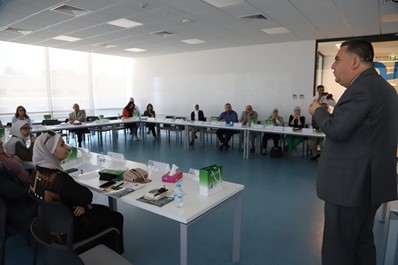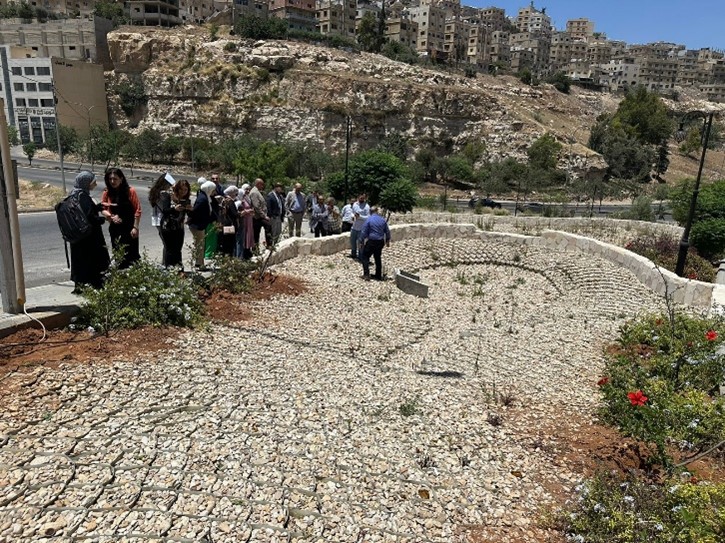Shifting from traditional approaches can be challenging, especially when roles and responsibilities are distributed across numerous actors and institutions. This is particularly true in urban water runoff management, where various entities—spanning government, the private sector, and civil society—play a role in water-related urban planning. To address this complexity, the WATERUN project incorporates a co-creation component, engaging key stakeholders to collaborate with the creators of WATERUN solutions to improve urban water management. Additionally, WATERUN fosters the exchange of knowledge between EU and non-EU countries to tackle shared challenges related to urban water runoff.

Figure 1 Local members of the International Stakeholder Board in Amman, Jordan
Joining forces across borders
WATERUN has established an International Stakeholder Board, featuring key stakeholders from Europe and beyond, to facilitate discussions on the future of urban water runoff management. Last month, the first International Stakeholder Board meeting was held in Amman, Jordan. This meeting gathered local representatives, including those from the Ministry of Water and Irrigation, the University of Jordan, and the National Implementation Committee of Effective and Integrated Wastewater Management in Jordan (NICE), alongside European participants such as WAREG, UFZ, and AIMEN. The discussions centered on key priorities, common challenges, and learning opportunities related to the regulation of diffuse water runoff pollution. Hosted at the University of Jordan, the meeting brought together nearly 40 local key sector actors who engaged with EU-based members of the WATERUN project team via remote participation.
The event featured contributions from experts such as Jehad Mahamid, Secretary General of the Jordanian Ministry of Water and Irrigation, who highlighted Jordan’s critical water challenges and the need for innovative solutions. Christian Minelli, Head of the Secretariat of WAREG, provided insights from a European perspective, focusing on water regulation and the role of multi-sector regulators in managing urban water runoff and related issues.
Presentations included those by Ganbaatar Khurelbaatar from UFZ, who addressed the challenges posed by urbanization and climate change on water runoff management, and Amani Taani from Jordan's Ministry of Water & Irrigation, who discussed ongoing urban water management initiatives and the importance of rainwater harvesting in Jordan. The event highlighted the necessity for integrated and sustainable approaches, such as blue-green infrastructure and decentralized water systems, to address water management challenges in both Jordan and Europe.

Figure 2 Site visit in Amman, Jordan
To conclude the event, local participants were invited to a field visit in Amman, showcasing pioneering urban water runoff management infrastructure. This infrastructure, located at the Al-Zhor intersection—a major junction connecting two significant streets in Amman—incorporates green infrastructure elements designed to improve runoff quality and enhance the livability of public urban spaces.
Find out more on: https://www.waterun.eu/
Authors: Simon Joncourt, seecon gmbh, simon.joncourt@seecon.ch - August 2024